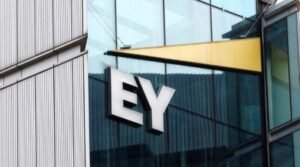In a seismic development that has reverberated through India’s corporate sphere, the National Financial Reporting Authority (NFRA) has launched a probe into one of Ernst & Young’s (EY) constituent firms, S.R. Batliboi, with regard to its association with the Adani Group, a prominent conglomerate in the nation. This significant move is part of a wider endeavor to meticulously scrutinize the financial reporting and audit practices within the Adani Group, raising pertinent questions about the transparency of their financial dealings and the regulatory vigilance exercised.
NFRA’s Inquiry into EY Member Firm

The NFRA, India’s preeminent regulatory entity entrusted with the oversight of the auditing and accounting professions, has inaugurated an exhaustive examination into the operations of S.R. Batliboi, an EY constituent firm. S.R. Batliboi plays a pivotal role in the auditing processes of companies affiliated with the Adani Group, which is helmed by the billionaire magnate, Gautam Adani.
The Adani Group Controversy

The Adani Group, boasting a diverse portfolio spanning infrastructure, energy, and resources, ranks among India’s foremost business conglomerates. It has, in recent years, found itself embroiled in a maelstrom of controversies and meticulous scrutiny, primarily centered around its financial modus operandi and corporate governance. The conglomerate’s meteoric rise to prominence in sectors such as power generation, port operations, and renewable energy has drawn both acclaim and censure. This elevation in stature has, inevitably, sparked inquiries into the conglomerate’s accounting and financial reporting practices, prompting regulatory bodies to intensify their oversight.
The NFRA’s Probe
The NFRA’s inquiry is an answer to the mounting concerns and allegations pertaining to the Adani Group’s financial transactions and the practices of its auditors. Here is a summary of what has come to light thus far:
- S.R. Batliboi in the Spotlight: The investigation is chiefly focused on S.R. Batliboi, one of EY’s constituent firms operating within India. This firm bears the responsibility of auditing several companies under the Adani Group umbrella, rendering it the epicenter of this regulatory examination.
- Thorough Examination of Audit Files: The NFRA has reached out to various entities involved in the auditing of Adani Group’s publicly listed companies, actively seeking access to audit files and correspondences. This endeavor underscores the regulatory authority’s unwavering commitment to conducting a comprehensive review of the auditing processes.
- Congressional Concerns: The investigation has not escaped the scrutiny of the political arena. Jairam Ramesh, a Member of Parliament, has voiced apprehensions regarding the auditors facing the Adani Group, characterizing the situation as “truly corrupt.” This narrative underscores the broader public interest and the far-reaching political implications accompanying the investigation.
The Significance of Regulatory Oversight
The NFRA’s examination of EY’s constituent firm in connection with the Adani Group bears monumental significance, with implications that transcend the immediate context. It underscores the criticality of robust regulatory supervision in guaranteeing the precision and openness of financial reporting within publicly traded entities.
The Role of Auditors
Auditors serve as pivotal custodians in preserving the financial integrity of companies. Their role transcends mere verification of financial statements; it extends to the assessment of internal controls, adherence to accounting standards, and overarching financial governance. In instances where doubts surface regarding audit practices or financial transparency, regulatory authorities step in to instigate investigations and secure compliance with the law.
The Imperative of Transparency
In the contemporary global business milieu, transparency assumes paramount importance in upholding trust and confidence in the corporate domain. Shareholders, investors, and the wider public rely upon accurate financial reporting to make informed decisions. Any breaches in transparency can have profound ramifications, impacting market stability and investor sentiment.
Implications for the Adani Group

As one of India’s foremost corporate entities, the Adani Group will be under close scrutiny throughout the course of this investigation. Any revelations of irregularities in financial reporting or auditing practices could exert substantial influence on the conglomerate’s reputation and its standing in the market.
What Is at Stake
The outcome of this investigation carries immense significance for all parties involved. For the Adani Group, it constitutes a litmus test of their commitment to transparency and regulatory adherence. For EY and its constituent firm, this scrutiny raises pivotal questions about their auditing methodologies and the potential consequences thereof.
The Path Forward
As the NFRA’s investigation unfolds, it becomes imperative to meticulously track the developments and findings. Regulatory authorities must ensure that any disparities are redressed, and remedial actions are implemented to preserve the integrity of India’s corporate sector.
Conclusion
The NFRA’s investigation into EY’s constituent firm in connection with the Adani Group stands as a pivotal stride towards upholding financial transparency and accountability within India’s corporate landscape. The verdict of this inquiry will not only bear upon the Adani Group but will also serve as a precedent for auditing and financial reporting practices across other major conglomerates. As this investigation progresses, the business realm and the public at large await its denouement with bated breath, anticipating a just and transparent resolution to the Adani Issue.










